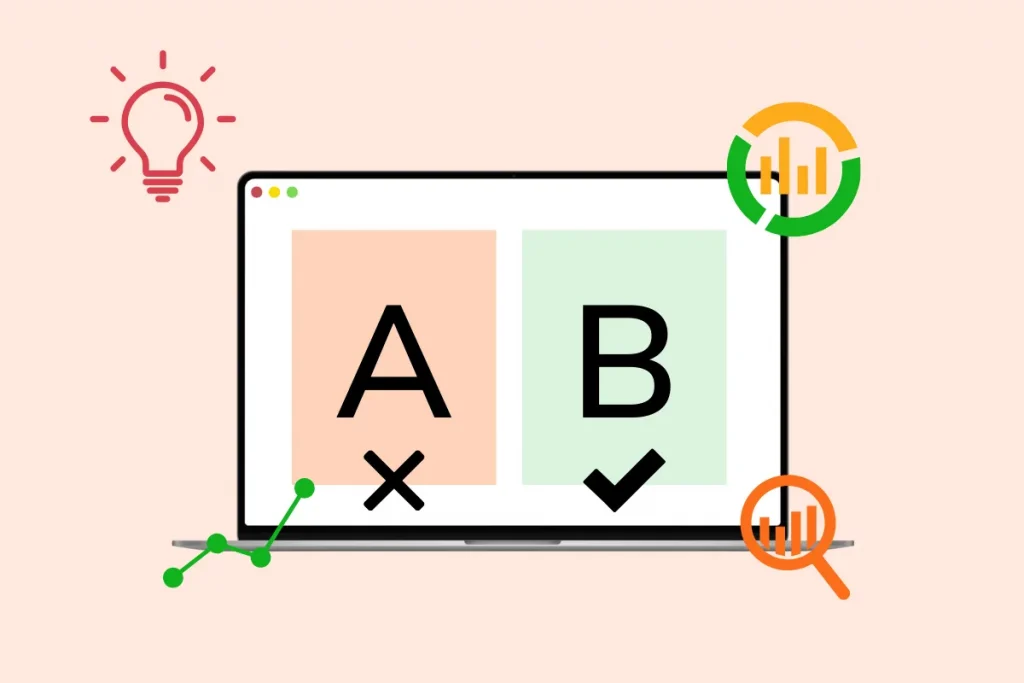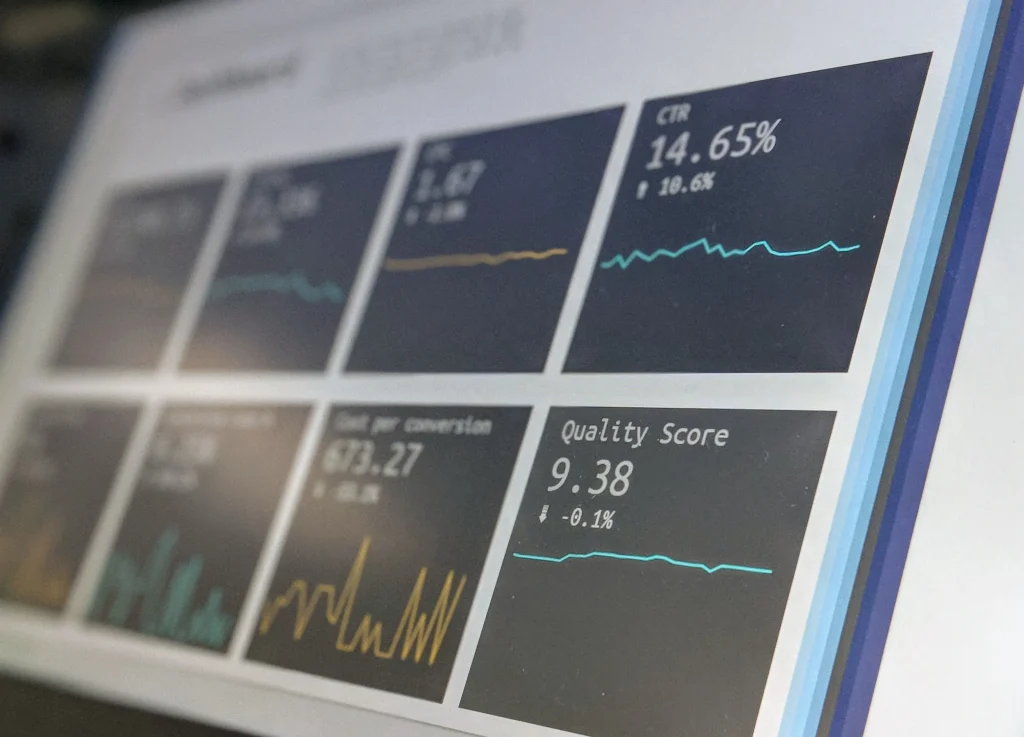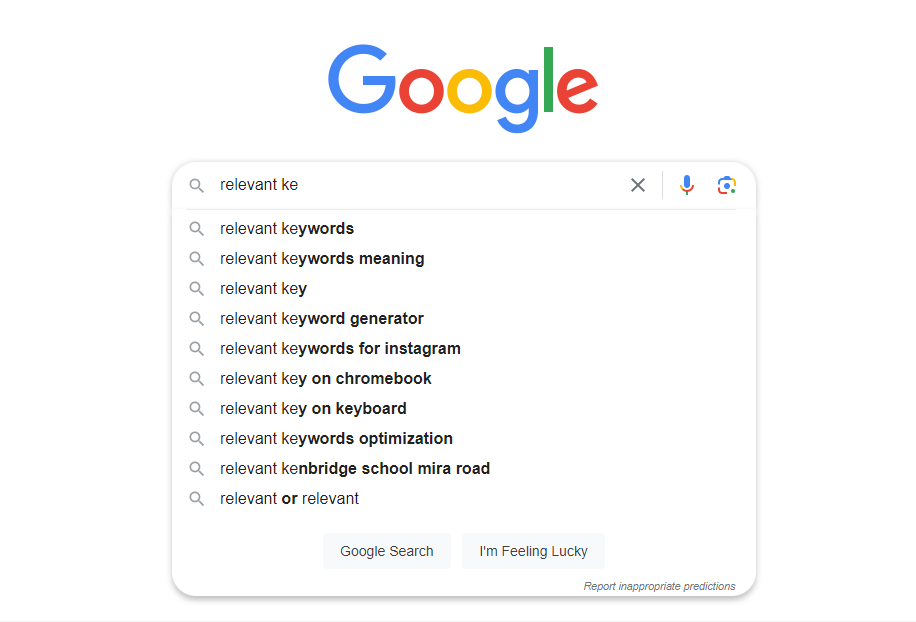
Discover why driving in-store visits remains a critical growth lever for e-commerce brands and learn how local SEO can help you.
Actionable SEO strategy guides designed for e-commerce brands. Learn how to improve search rankings, increase visibility, and drive qualified traffic through scalable, results-driven SEO tactics.
Discover why driving in-store visits remains a critical growth lever for e-commerce brands and learn how local SEO can help you.
Discover the top 3 SEO secrets for large e-commerce sites to boost your organic traffic and increase sales.
Discover how A/B testing can be applied to SEO for large e-commerce, enabling data-driven decisions to boost rankings and conversions.
Strategically placing keywords in your page titles and URLs isn’t just basic SEO—it’s a game changer. Even subtle shifts can propel you ahead of your competition. Discover how.
Discover the top 10 best enterprise SEO tools and platforms for 2025. Get a comprehensive list of the leading solutions to improve online visibility and maximize success. Learn more now!
Most e-commerce businesses rely on SEO for establishing their online presence, attracting potential customers, and finally driving revenue. Discover the complexities and teamwork involved in this vital strategy.
Discover the power of Product Listing Pages (PLPs) for e-commerce SEO. Learn how to create specific PLPs to capture non-branded search traffic effectively and gain insights from European retailers’ strategies.
Empty category pages are a hidden problem for many online shops. Redirects are a precious tool that preserve the value of your pages in terms of both traffic and backlinks. Discover when and how implementing redirects.
Every ecommerce website often experiences category pages with limited products resulting in lower conversion. The good news is fallback search is the perfect solution to reduce frustration and improve conversion.
Creating content is one of the most important components of building an ecommerce website. It’s through content that customers and prospects get to know who you are, see the available products and their descriptions, locate payment instructions, read blog posts, and more.
Zero-click results dominate many SERPs today, but what does this mean for your SEO strategy? Dive into our blog post to understand the concept of zero-click results and how to adapt your SEO efforts in this changing landscape
How many web pages should an e-commerce site have? This is not a one-size-fits-all scenario. Our blog post examines this question, focusing on customer journey value and helping you optimize your e-commerce site structure.
With the ever-increasing competition for top spots in SERPs, it’s becoming increasingly challenging for ecommerce sites to find new traffic opportunities. That’s where Verbolia comes in…
Some weeks ago, Google announced the launch of its latest helpful content update, which is expected to initially impact…
Not all products share the same demand cycle. Some products, especially necessities like household and grocery items, are in-demand throughout the year…
Seventy percent of people prefer to find out about your ecommerce store through an article rather than a traditional ad. This is why an effective content marketing strategy is critical. It allows you to build trust and traffic in a compounding way, which pays dividends over time. So in this article, we’ll cover five content marketing tips that’ll level up your online store.
Discover how content marketing can improve your ecommerce website’s SEO performance. Explore the integral role of keyword research and tools to leverage for success.
Effective keyword research is vital because online shopping has become big business. According to some estimates, eCommerce sales accounted for 14.1% of retail purchases globally in 2022. And by 2024, this number is expected to grow to 22%.Therefore, every marketer must understand how to perform keyword research in 2022.
Change is the only constant in life, and nowhere is this more apparent than in digital marketing. Frequent updates and shifts mean that the factors that contribute to a qualitative SEO website a few years ago may differ significantly from those in 2025.
Uncover the significance of fresh content for SEO in this blog. Explore its increased importance after Google’s caffeine update. Assess whether your website deserves and can benefit from regular updates for improved search engine rankings.
Unlock the secrets of multilingual SEO with this comprehensive blog. Explore the intricacies of optimizing your website for multiple languages and cultures. Gain insights into effective strategies and techniques for reaching a global audience and boosting your international search rankings.
Explore our article where we address the SEO pain points and unique challenges of optimizing e-commerce websites. Learn potent strategies to navigate these hurdles and elevate your online business.
In our latest post, we unpack the factors that influence the time it takes to see SEO results, which can range from weeks to months. Dive into the nuances of organic growth, search engine optimization, and the essential values of patience, strategy, and perseverance for successful SEO outcomes.
So you have a great website design. You also have the perfect products, structure, and content. But what about those fabled and relevant keywords we always talk about?
The number of people who speak English is slightly above one billion. This means that if you aren’t implementing an international SEO strategy, you’re ignoring six billion people and leaving a lot of money on the table. In this post, we’ll show you how to tap into other markets and what you should consider when creating an international SEO strategy.
Hosted by Daniel Valle Vieyra, Head of Operations at t2ó, the latest episode of their podcast show Digital Meets features our CEO, Pierre-Olivier Danhaive, and Javier Gutiérrez, Director of Digital Marketing Operations at GÜO Tech. In this episode, they shared their views on the evolution of SEO and how brands can benefit from it.
There are 12 to 24 million eCommerce websites in the world. So how can your brand stand out? Invest in cutting-edge eCommerce SEO. Follow these 5 e-commerce tips for 2025 to boost your brand’s visibility and stay ahead of the competition.
94% of all content gets zero backlinks. This is good news for your ecommerce website because if you can generate at least a few backlinks to each piece of content on your website, you’ll be head and shoulders above most online stores in your niche. Unfortunately, 41% of SEO experts say that building backlinks is the most challenging part of the job. So to make your life a little easier, here are four SEO link building tips for your ecommerce website.
Some weeks ago, Google announced the launch of its latest helpful content update, which is expected to initially impact…
Did you know that about 53% of all website traffic is organic? With so much organic traffic, it’s helpful to know what kinds of financial results your SEO efforts (or lack thereof) are driving.
SEO has been at the heart of website owners’ worries for many years and will be for many more. The reason for this is because SEO is an ever-evolving activity. In short, SEO depends essentially on three main elements: Google’s search algorithm, technological advances, and human psychology.
Search Engine Optimization (SEO) is a fundamental process to ensure your eCommerce site rises to the top of the search engine rankings, resulting in a steady influx of highly qualified, purchase-ready consumers.
However, SEO isn’t a “one-and-done” approach. Indeed, your eCommerce platform may receive initial SEO optimization at its launch, but without consistent attention to SEO, your site will likely fall behind in the competitive landscape.
There are plenty of ways to drive traffic to your store—but ranking high in the search engines is among the most powerful. A high ranking brings you buyer-ready traffic and instantly confers customer trust upon you, leading to huge revenue opportunities. But how do you know if your eCommerce website is optimized for the search engine bots? Let’s explore how to find out (and further optimize) in this post.
Your eCommerce store has plenty of options for getting in front of customers eager to buy from you. One of the best is SEO. In today’s increasingly digital business environment, you need a fast, intuitive storefront with strong SEO. But nailing SEO is complicated. Plus, it takes a long time to kick in.
While the term Search Engine Optimization (SEO) was coined more than 20 years ago, and has existed since the early nineties, there are still a lot of common misconceptions about what SEO is, how it works, and especially, what it can bring.
When it comes to digital marketing, content is king. In this post, we explain you how Artificial Intelligence can help you to have qualitative content on your site and makes sure your brand’s presence is felt in the online space. It can help you establish your authority in your niche, drive traffic to your website, convert visitors into high-quality leads, and foster customer loyalty.
Let’s face it, this is probably not your first time to encounter the term “SEO.” You may have received a couple of emails from people who claim that your website needs some SEO work. If not, you could’ve combed through a handful of online marketing guides and read a section or two about SEO.
































